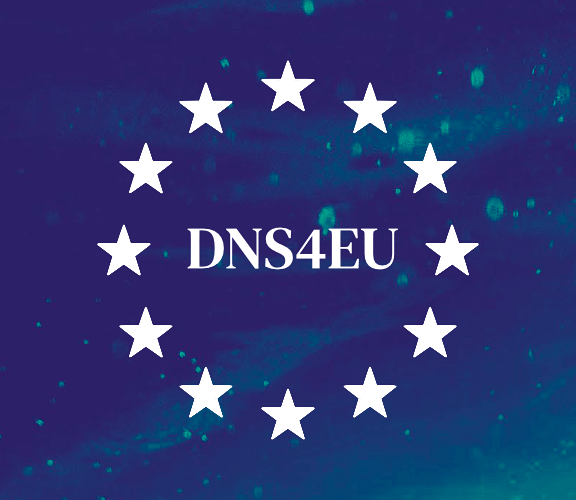

DNS Security |
Sponsored by |

|
 As Internet governance fragments in 2026, authority shifts from open, multistakeholder forums to state-led security regimes, legal instruments, and alliance-based cooperation, challenging longstanding institutions and reshaping global norms through enforcement rather than consensus.
As Internet governance fragments in 2026, authority shifts from open, multistakeholder forums to state-led security regimes, legal instruments, and alliance-based cooperation, challenging longstanding institutions and reshaping global norms through enforcement rather than consensus.
 The ICC's new cyber policy reframes Internet infrastructure as crucial to prosecuting atrocities, prompting DNS operators and network providers to grapple with emerging obligations around evidence, neutrality, and cooperation in international justice.
The ICC's new cyber policy reframes Internet infrastructure as crucial to prosecuting atrocities, prompting DNS operators and network providers to grapple with emerging obligations around evidence, neutrality, and cooperation in international justice.
 ICANN is finalising a policy to curb DNS abuse, aiming to preserve internet stability while defending freedom of expression. With regulatory pressure mounting, the multistakeholder model faces a critical test.
ICANN is finalising a policy to curb DNS abuse, aiming to preserve internet stability while defending freedom of expression. With regulatory pressure mounting, the multistakeholder model faces a critical test.
 To prepare DNS security for a post-quantum future, Verisign and partners are testing new cryptographic strategies that balance security, performance, and feasibility, especially through the novel Merkle Tree Ladder mode for managing large signatures.
To prepare DNS security for a post-quantum future, Verisign and partners are testing new cryptographic strategies that balance security, performance, and feasibility, especially through the novel Merkle Tree Ladder mode for managing large signatures.
 eco's topDNS initiative and AV-Test are publishing monthly reports to help ISPs detect and mitigate DNS abuse by analysing malware, phishing, and PUA trends, creating a long-term data foundation for industry-wide transparency.
eco's topDNS initiative and AV-Test are publishing monthly reports to help ISPs detect and mitigate DNS abuse by analysing malware, phishing, and PUA trends, creating a long-term data foundation for industry-wide transparency.
 Despite offering robust protection for the Domain Name System, DNSSEC suffers from poor adoption due to its complexity, cost, and operational risks. Automation and algorithmic improvements now offer practical solutions for broader deployment.
Despite offering robust protection for the Domain Name System, DNSSEC suffers from poor adoption due to its complexity, cost, and operational risks. Automation and algorithmic improvements now offer practical solutions for broader deployment.
 Private DNS data lakes consolidate fragmented logs into a centralised platform, improving visibility, security, and compliance. They enable advanced analytics, strengthen threat detection, and help organisations optimise network performance in increasingly complex IT environments.
Private DNS data lakes consolidate fragmented logs into a centralised platform, improving visibility, security, and compliance. They enable advanced analytics, strengthen threat detection, and help organisations optimise network performance in increasingly complex IT environments.
 Earlier this week, Poland’s new President, Karol Nawrocki, vetoed amendments to the Act on Assistance to Citizens of Ukraine, provoking debate over critical satellite connectivity. Deputy Prime Minister and Minister of Digital Affairs Krzysztof Gawkowski warned that the veto “de facto switched off Starlink for Ukraine,” potentially disrupting connectivity for hospitals, schools, and government operations.
Earlier this week, Poland’s new President, Karol Nawrocki, vetoed amendments to the Act on Assistance to Citizens of Ukraine, provoking debate over critical satellite connectivity. Deputy Prime Minister and Minister of Digital Affairs Krzysztof Gawkowski warned that the veto “de facto switched off Starlink for Ukraine,” potentially disrupting connectivity for hospitals, schools, and government operations.
 Cybercriminals live by the tenet "If it ain't broke, don't fix it." They'll use the same tactics repeatedly until they no longer work, then switch things up. That's why CISOs and their security teams maintain constant vigilance. Underscoring this, recent analysis of global DNS activity found that new domains continue to be a major tactic for bad actors.
Cybercriminals live by the tenet "If it ain't broke, don't fix it." They'll use the same tactics repeatedly until they no longer work, then switch things up. That's why CISOs and their security teams maintain constant vigilance. Underscoring this, recent analysis of global DNS activity found that new domains continue to be a major tactic for bad actors.
 At the 20th Internet Governance Forum in Lillestrøm, Norway, the UN Internet Governance Forum's dynamic coalition Internet Standards, Security and Safety (IS3C) released its new report on post-quantum policies. This report presents the findings of a collaborative study undertaken by IS3C and the French domain name registry Afnic and examines the critical need for Post-Quantum Cryptography (PQC) to achieve greater security in the ever-expanding global IoT landscape.
At the 20th Internet Governance Forum in Lillestrøm, Norway, the UN Internet Governance Forum's dynamic coalition Internet Standards, Security and Safety (IS3C) released its new report on post-quantum policies. This report presents the findings of a collaborative study undertaken by IS3C and the French domain name registry Afnic and examines the critical need for Post-Quantum Cryptography (PQC) to achieve greater security in the ever-expanding global IoT landscape.
 The NetBeacon Institute is pleased to publish its White Paper: Proposal for PDPs on DNS Abuse. We created this paper to support and advance ICANN Community discussions on potential policy development related to DNS Abuse. From our unique perspective, we believe there are a number of issues that are constrained enough to be a successful ICANN PDP and can make a meaningful difference in our collective work against DNS Abuse.
The NetBeacon Institute is pleased to publish its White Paper: Proposal for PDPs on DNS Abuse. We created this paper to support and advance ICANN Community discussions on potential policy development related to DNS Abuse. From our unique perspective, we believe there are a number of issues that are constrained enough to be a successful ICANN PDP and can make a meaningful difference in our collective work against DNS Abuse.
 Cyber criminals are the kings of recycling. Once they've found a tactic that works well, they'll keep doing it as long as they can get away with it. That's why it's so important for research teams to keep a close eye on what's happening behind the scenes with web traffic. Case in point? Our team at DNSFilter recently analyzed global DNS activity from the first quarter of 2025 and identified several notable trends.
Cyber criminals are the kings of recycling. Once they've found a tactic that works well, they'll keep doing it as long as they can get away with it. That's why it's so important for research teams to keep a close eye on what's happening behind the scenes with web traffic. Case in point? Our team at DNSFilter recently analyzed global DNS activity from the first quarter of 2025 and identified several notable trends.
 On Jan. 11, 2025, Verisign supported the Internet Corporation for Assigned Names and Numbers (ICANN) in taking a major step to ensure the continued security, stability, and resiliency of the Domain Name System (DNS). While imperceptible to most users, this action - specifically, the introduction of a new Domain Name System Security Extensions (DNSSEC) Key Signing Key (KSK) in the root zone - is the next step of a multi-year-long process to change, or "roll," the cryptographic key that secures the root of the DNS.
On Jan. 11, 2025, Verisign supported the Internet Corporation for Assigned Names and Numbers (ICANN) in taking a major step to ensure the continued security, stability, and resiliency of the Domain Name System (DNS). While imperceptible to most users, this action - specifically, the introduction of a new Domain Name System Security Extensions (DNSSEC) Key Signing Key (KSK) in the root zone - is the next step of a multi-year-long process to change, or "roll," the cryptographic key that secures the root of the DNS.
 At the Internet Governance Forum (IGF) 2024 in Riyadh, the Internet Standards, Security and Safety Coalition (IS3C) released a new tool: 'To deploy or not to deploy, that's the question. How to convince your boss to deploy DNSSEC and RPKI'. In this report, IS3C advocates mass deployment of these two newer generation, security-related internet standards, as their deployment contributes significantly to the safety and security of all internet users.
At the Internet Governance Forum (IGF) 2024 in Riyadh, the Internet Standards, Security and Safety Coalition (IS3C) released a new tool: 'To deploy or not to deploy, that's the question. How to convince your boss to deploy DNSSEC and RPKI'. In this report, IS3C advocates mass deployment of these two newer generation, security-related internet standards, as their deployment contributes significantly to the safety and security of all internet users.
 The cybersecurity landscape in 2024 has been characterised by unprecedented complexity and rapidly evolving threats, presenting significant challenges for organisations across all sectors. As the digital attack surface expands and threat actors employ increasingly sophisticated techniques, domain security has emerged as a critical component of a robust cybersecurity strategy.
The cybersecurity landscape in 2024 has been characterised by unprecedented complexity and rapidly evolving threats, presenting significant challenges for organisations across all sectors. As the digital attack surface expands and threat actors employ increasingly sophisticated techniques, domain security has emerged as a critical component of a robust cybersecurity strategy.
 EU-based DNS Internet Infrastructure Beginning to Take Shape, Planned to Onboard 100 Million Users
EU-based DNS Internet Infrastructure Beginning to Take Shape, Planned to Onboard 100 Million UsersA seven-year malware campaign, orchestrated through seemingly trusted browser extensions, exposed millions of users to DNS abuse. ShadyPanda's infrastructure reveals how trust, subtlety and DNS manipulation sustained an enduring threat. more
An analysis of domains linked to the top malware strains of Q3 2025 reveals early threat signals, typosquatting patterns, and thousands of connections to malicious infrastructure, underscoring the predictive power of DNS telemetry. more
Acronis researchers uncovered a vast malvertising scheme named TamperedChef, which exploited legitimate-looking apps to deploy malicious scripts, steal data, sell remote access, and lay the groundwork for espionage and ransomware campaigns. more
MITRE introduced nine new threat groups tied to major vulnerabilities, with deep DNS analysis uncovering 108 malicious domains, 31 risky IPs, and multiple emerging artifacts that highlight evolving attack patterns and early warning opportunities ahead. more
A DNS investigation into GhostCall and GhostHire uncovers how BlueNoroff targeted tech leaders and Web3 developers, exposing extensive data theft and a wide malicious infrastructure that included suspicious domains, weaponized IP addresses, and typosquatted assets. more
Russia-linked threat actor COLDRIVER has revamped its malware into a new backdoor called MAYBEROBOT, targeting NGOs and dissidents. Early DNS signals and IP resolutions reveal a methodically evolving cyber-espionage campaign. more
A threat campaign known as Beamglea exploited npm packages to target over 135 companies globally. Researchers uncovered 175 malicious packages, 344 related domains, and dozens of IP-linked artifacts through DNS and WHOIS analysis. more